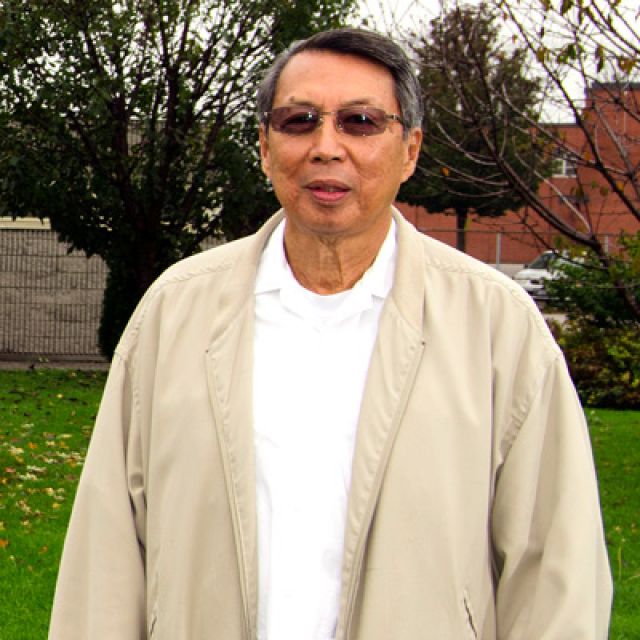“It is like treating the whole person and not just a part of the person,” said the former surgeon and family doctor. “I feel the stress of losing your authentic identity and feeling not loved and the woundedness of that very much impacts your health. But we (as doctors) tend to overlook this part, we don’t see it and if we do see it don’t address it much.”
Fung has penned an educational booklet titled Spiritually Stressed: The Hidden Factor In Clinical Depression. He will be holding a seven-week workshop at his local parish, St. Bartholomew, scheduled to begin Oct. 23. Fung has also been spreading his message through presentations to various organizations. Catholic Family Services is the next organization that will hear from Fung, on Oct. 24.
This growing interest gives him reassurance that he’s on to something.
Fung said the culture surrounding modern medicine focuses on the physical, tangible world and pays little to no attention to the world we cannot see even through powerful microscopes. Often this leaves patients being treated, generally speaking, through medicine or lifestyle changes such as diet and exercise, but does not cure the ailment.
Fung uses the example of a patient suffering from depression following a divorce. Instead of helping this person who is feeling abandoned, betrayed and rejected recognize that they are loved by God, the doctor will more often than not prescribe a medication and offer lifestyle changes as a solution, said Fung.
“What they are missing is love,” he said. “The biggest hurt anyone can experience is the trauma of rejection, betrayal and abandonment of love. That hurt is deep in your spirit.”
By helping one experience God’s love, which flows from one person to another, patients can overcome the spiritual stress causing their physical ailments, rather than mask them with medication.
To achieve this, all a doctor has to do, said Fung, is be present to the patient as an authentic person with genuine, loving concern for those around them, just as God calls us to be.
“We as Christians are called to love one another,” he said. “As long as you are really sincere and honest and you are present to the patient and are listening attentively and just being present, somehow it encourages the patient to feel more safe and secure.”
But Fung admits doing that in a doctor’s office is no easy task without violating the rules and laws which govern the practice of modern medicine.
“As a medical doctor I always felt challenged to find a way to bring the spiritual and the physical psychosocial together,” he said. “The challenge has always been for me to bring the two together without proselytizing or preaching religion.”
Now retired, Fung is no longer under such tight regulations.
“After I retired my interest became more in focusing on helping people to overcome their brokenness and to discover their true selves,” the way God views all of us, said Fung.
Fung still believes in the benefits of modern medication though. He just feels that prescriptions are part of the answer, not the only solution, to depression.
“That’s why we have to keep taking medication all the time,” he said.
“From a scientific point of view we are looking for a scientific cause and we hope that we will get an answer to it. Although I believe science is important I feel we are overlooking the most important part which is the spiritual part of a person that allows them to know that they are loved and they are unique.”


